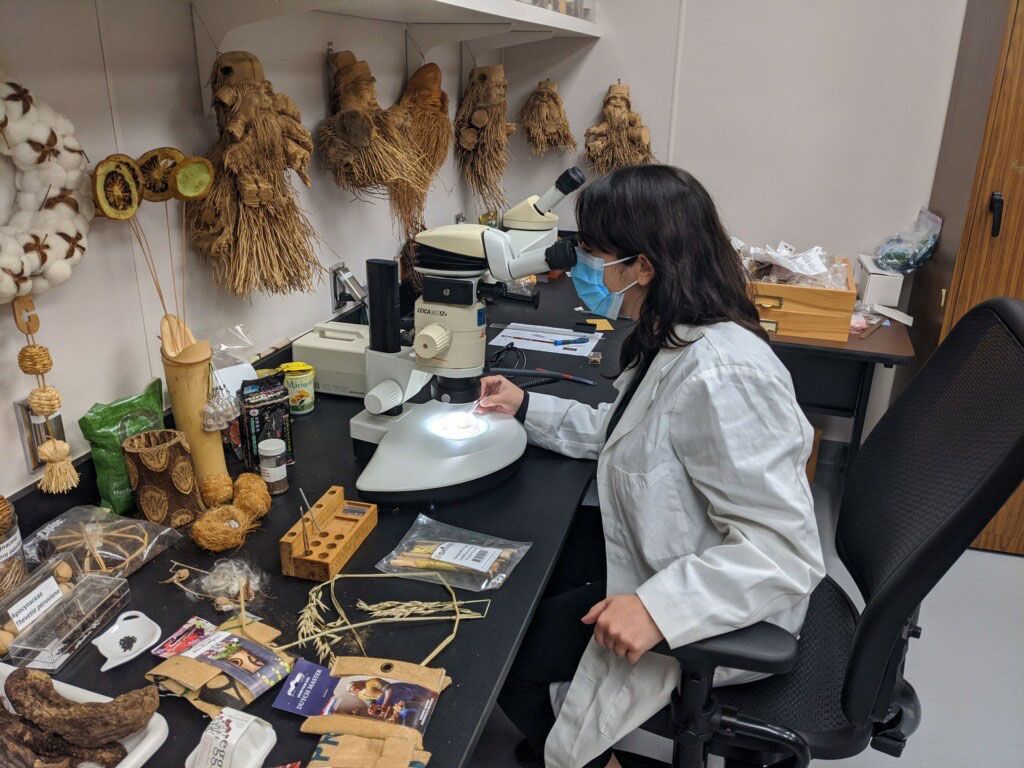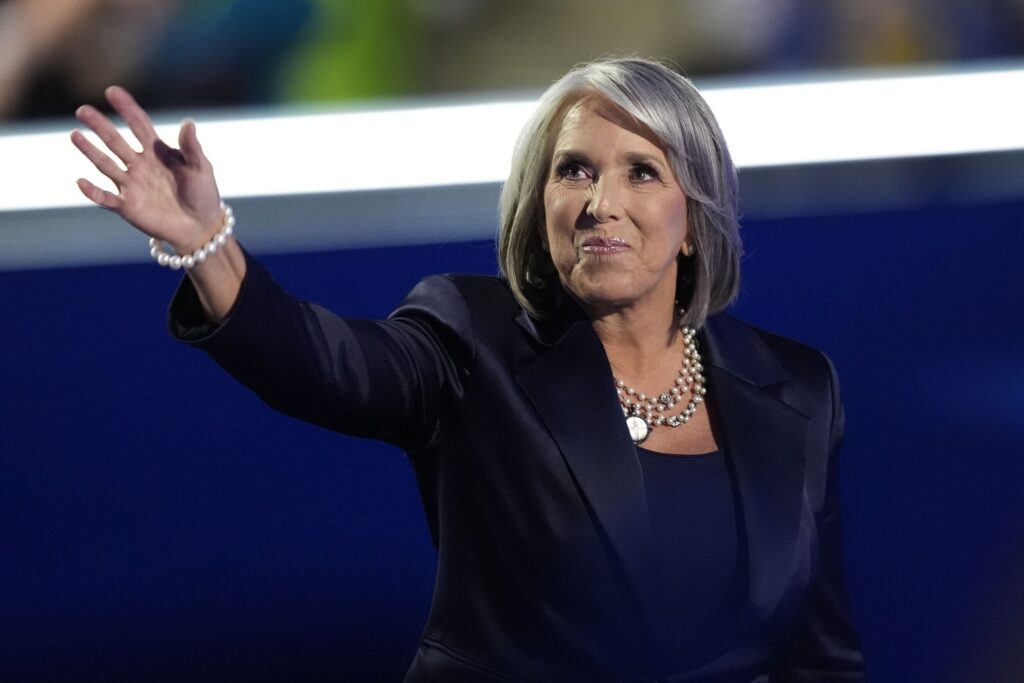Colorado school meals program faces $50 million funding shortfall
A voter-approved program mandating free breakfast and lunch for grade school students — regardless of income — is facing tens of millions of dollars in funding shortfall, a problem lawmakers will need to resolve under tight budget pressures.
The steep shortfall could mean allocating money for students’ meals at the expenses of other priorities, something that lawmakers appeared reluctant to do. A few noted the earlier skepticism toward the program’s “math,” citing analyses saying it would not pencil out.
The Healthy School Meals for All program, which lawmakers placed on the ballot and which 55% of voters approved in 2022 election, was initially projected to cost up to $115.5 million for Fiscal Year 2023-2024 and anywhere from $71.4 to $101.5 million the following year.
However, the actual numbers came in at $166 million for Fiscal Year 2023-2024 and more than $131 million for Fiscal Year 2024-2025.
“This is another program that voters passed with an identified fund source that has also come up short,” noted Rep. Shannon Bird, D-Westminster, chair of the Joint Budget Committee.
The March revenue forecast shows the state has collected more in “cash funds” — funding sources that may only be used for the purposes designed by state law, such as the license fees paid for by hunters and anglers. A significant infusion of cash funds, together with general fund monies, means going over the Taxpayer’s Bill of Rights limit, and the more lawmakers have to send back to taxpayers through TABOR refunds, the less they have for next year’s fiscal budget.
The Healthy School Meals for All program, which also intends to make upgrades to school kitchens, increase wages for cafeteria staff, and provide grants for schools to purchase local produce, is funded by limiting state income tax deductions for taxpayers who make more than $300,000 in annual income. More specifically, the program increases the state’s income tax revenue by requiring them to to add back a certain amount of federal deductions to their Colorado taxable income.
Amanda Bickel, chief legislative analyst for the Joint Budget Committee, said one of the reasons the state is expected to be over $100 million short in funds over the next two years is because of a change in eligibility criteria for the federal school meal service option known as the Community Eligibility Provision.
The program, which is funded by the U.S. Department of Agriculture (USDA), reimburses schools for serving free breakfast and lunch to low-income students. Bickle said that when the Healthy School Meals for All program was enacted, the Community Eligibility Provision required a school district to have 40% of its students qualify as low-income to receive reimbursement.
In October of 2023, the USDA changed the threshold to 25%, resulting in a significant increase in the number of schools eligible for the program.
Bickel said the consequences of the threshold reduction, positive or negative, are yet to be seen.
“It’s much less clear whether it’s actually gonna be to the state’s benefit, and if it’s gonna be less expensive for the state for schools to do Community Eligibility Provision or not,” she said.
Another factor contributing to the increased costs is the higher-than-anticipated participation rates.
The initial estimates said about 20% of students would participate in the Healthy School Meals for All program. The actual number is closer to 30%, which translates to approximately 150,000 additional meals the state did not budget for.
‘The math doesn’t work’
The governor’s Office of State Planning and Budgeting suggested paying for this year’s additional expenses by tapping into either the State Education Fund or general fund dollars — revenue from individual and corporate income taxes and state sales and use taxes.
Bickel, the budget analyst, said the General Assembly could then enact legislation to make several changes to the program, including delaying implementation of the wage increases and grants until at least Fiscal Year 2025-2026 and integrating legacy school nutrition initiatives with the Healthy School Meals for All program.
While the members of the Joint Budget Committee agreed with the latter half of OSPB’s recommendation, they found themselves divided on where to draw funds from to account for this year’s shortfall.
Bird, the committee chair, said she and her colleagues have a responsibility to follow through with the commitment they made to their constituents who voted to enact the program, even as she expressed worries about taking funds out of the State Education Fund. She has doubts it would ever be paid back, she said.
“We need to feed children,” she said. “This is not ideal, but I don’t think that when we passed this we would want to have said we’re gonna crowd out anything else that we wanted — even State Ed money — for. I don’t think that’s right, because I don’t see any real prospect of ever paying that back. That seems to be something that probably wouldn’t happen.”
Sen. Rachel Zenzinger, D-Arvada, agreed with Bird, adding that she doesn’t think the program qualified for funding under the State Education Fund. She said that, while she voted in favor of the program in 2022, financial experts at the time had cautioned against its financial viability.
“There were tons and tons of analyses that were done that said this is not penciling out, the math doesn’t work, and nobody listened,” she said. “So, here we are. We’re in a situation now where we have an obligation that is on the line, and I don’t think it’s appropriate to use the State Ed Fund.”
Zenzinger added: “We are in a position, just this year, for the first time ever, to pay off the Budget Stabilization Factor, and I don’t want to put that in jeopardy. I don’t like falling back on our piggy bank to solve for this because I don’t feel it’s appropriate.”
Zenzinger suggested exploring the possibility of using funds from the Department of Agriculture’s Community Food Access Grant, which currently holds over $3 million in unencumbered funds, to support the local foods purchase grant.
Meanwhile, Sen. Barbara Kirkmeyer, R- Brighton, proposed looking into the Department of Local Affairs’ Community Services Block Grant.
“I’m for getting as much food as possible to the kids, but I’m not for putting everything else in jeopardy over this,” Kirkmeyer said. “Things came up. Everything changed. That’s the way it goes. Everybody deals with this, even in their own budget.”
She added: “We cannot fund everything.”
Will the consultants figure it out?
Sen. Jeff Bridges, D-Greenwood Village, expressed apprehension with delaying or getting rid of some of the provisions of the program, especially ones voters specifically embraced via the ballot measure.
“The voters said they wanted all of these things, but when they said they wanted all of these things, it was with the understanding that the ask for increased revenue that accompanied them would cover for all of these things,” he said. “I think the position we find ourselves in as a JBC and as a legislature is what do we do when with the best of intentions and with the best research and the best understanding we had, we went to voters and said, ‘We have this idea. What do you think?’ and they said, ‘Go for it.’ And then it turns out things changed?”
The governor’s office said the state will fulfill the obligation.
“Colorado will fulfill the voter requirement that every child has access to healthy meals so they can succeed academically and in life,” said spokesperson Shelby Wieman. “The state continues working to fulfill the will of Colorado voters who passed the ballot measure making school lunches free for all students.”
For the time being, the committee has opted to allocate a total of $250,000 over the next two years to hire consultants and temporary staffers to explore potential ways to mitigate program expenses.
They plan to craft and endorse legislation aimed at postponing the enactment of wage distribution provisions, enhancing statutory adaptability concerning the Community Eligibility Provision and collaborating with the Department of Education and districts to ensure adherence to optimal cost-saving practices.
An existing $675,000 grant will be used to fund local food purchasing through fiscal year 2024-2025.
In addition, on March 18, the JBC elected to take out $22.8 million from the State Education Fund for the 2023-2024 and 2024-2025 fiscal years to cover the shortage, if necessary.
In addition, the lawmakers chose to implement four proposals from JBC staff, such as capping distributions by creating a revenue-sharing program that prorates the program’s revenue. They also directed the Department of Education to collaborate with school districts, OSPB staff, and other parties to identify other ways to reduce program costs and present their findings to the JBC in June and September, with a final report due on Dec. 1.













